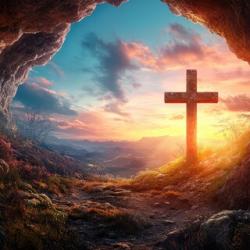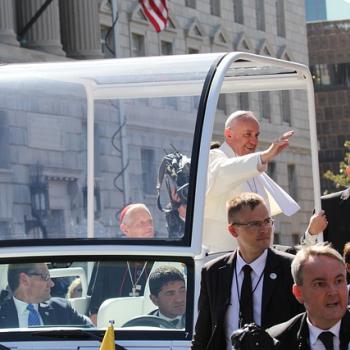 By Robert John Russell
By Robert John Russell
When I was in seminary back in the 1960s, mainline Protestant theology basically ignored the natural sciences -- physics, cosmology, evolutionary biology, the whole gamut of dazzling discoveries ranging from human nature to the origin and destiny of the universe. I used to thumb through the subject index on tomes by Karl Barth, Paul Tillich, Reinhold Niebuhr, and Dietrich Bonhoeffer looking for references to Einstein, Schroedinger, Darwin, even Copernicus -- and come up with basically nothing. It was the era of "two cultures," as C. P. Snow put it, with little if any overlap.
Of course, if the only alternative was the warfare stance by Christian fundamentalists against Darwinian evolution dating back at least to the Scopes trial of the 1920s, then perhaps keeping science and religion separate was a welcome relief. But surely evolution is not inherently atheistic as the fundamentalists claimed, for science can no more adjudicate the existence of God than my bathroom scales can tell me what I'm thinking. So there should have been an alternative to the "warfare or divorce" mindset.
Fast forward some forty years. The "two cultures" stance has been reinvented as "non-overlapping magisteria" by the late biologist Stephen Jay Gould, and that posture seems just fine to most pastors in the mainline churches, not to mention the 6000+ scholars in the American Academy of Religion. Meanwhile the conflict movement has spawned "creation science" in an attempt to replace Darwin with a literal reading of scripture while other Christians try to force God into science disguised, thinly, under the rubric of "Intelligent Design." But scripture is not a science manual, pace the Creationists. As Augustine adroitly remarked, the Bible doesn't tell us how the heavens go but how to go to heaven. And ID is not science but interventionist theology and it has no place in public high school science classes.
The good news is that there is real hope now, and mainline Protestants should take note! A third approach has been growing, at first slowly but now with breathtaking speed, one that seeks genuine and responsible dialogue between theology and science. It began quietly with the work of such scholars as Ian Barbour some fifty years ago. Today it includes centers of research and teaching scattered throughout the globe as well as hundreds of scientists and religious scholars in universities, colleges, and seminaries internationally. I like to call it the "creative mutual interaction" between theology and science. Yes, there is room for honest disagreements over topics ranging from why the universe is fine-tuned for life to whether we should pursue research on human embryonic stem cells. Still, the crucial difference with the other approaches is this: both sides of the dialogue hold each other in respect and believe they have something essential to gain from it.
In my view, one of the most promising areas for dialogue is over the question of God's relation to and action within the natural world. Sure, science used to think that the world of physics and biology is a deterministic, closed, causal order, that everything that happened in the history of life on earth happened strictly by natural causes. When we thought that way, we might well have concluded that God can only act in nature by breaking into the seamless natural order, violating the flow of natural processes, and suspending the laws of nature that science uses to describes these processes.
But wait! Much of the sciences on which such a closed view of nature was based have been replaced by the new sciences of the 20th century. From the mind/brain problem involving the neuro and cognitive sciences to the phenomena of the emergence of complex physical systems that transcend the causal behavior of their subsystems, from the non-local behavior of fundamental particles to the acceleration of the expansion of the visible universe, from the role of "evo-devo" in the evolution of species to the spontaneous emergence of order in non-linear thermodynamic systems, the universe is vastly more mysterious and astonishing than we ever thought. Who knows the extent to which nature -- at many, perhaps all, levels of organization -- reflects a fundamental indeterminism through which God acts to bring about the radically new out of the old.
I have dubbed this God's "non-interventionist objective divine action" or "NIODA." Today Christians can claim that science points to a view of nature that is compatible with God's loving, creative action in the world without casting it in awkward, interventionist terms. Thus when it comes to the evolution/creation debate, Christians no longer have any need for Intelligent Design or Creation Science. Belief in God as the author of life, in God's Spirit moving through the world and bringing about the truly new, is not only not challenged by evolution but makes deep sense in light of evolution.




